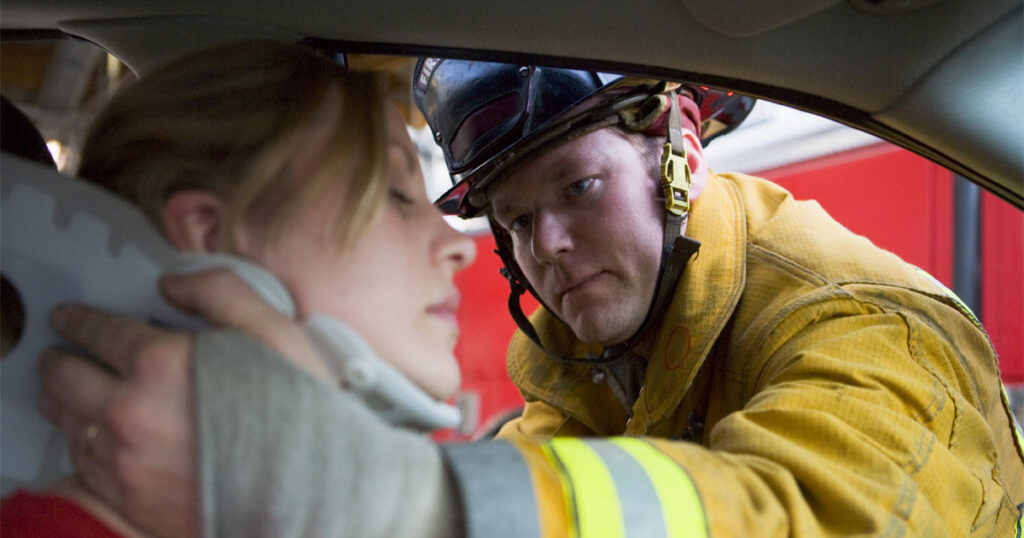Our Family Has Given A Voice To The Injured For Over 50 Combined Years

Car accidents remain one of the leading causes of concussions in the United States. These Traumatic Brain Injuries (TBIs) can have significant impacts on your health, daily function, and quality of life. Recognizing the signs of a concussion after an automobile collision is vital for obtaining proper medical care and protecting your legal rights.
What Exactly Is a Concussion?
A “concussion” is a mild traumatic brain injury that occurs when a sudden blow or jolt to the head causes the brain to move rapidly within the skull. During a car accident, the force of impact can throw your head forward, backward, or sideways, causing your brain to strike the inside of your skull. This impact disrupts normal brain function and may lead to chemical changes within brain tissue. Though often classified as “mild” brain injuries, concussions should always be taken seriously as they can result in lasting symptoms and complications.
What Physical Symptoms Might Indicate a Concussion?
Following a car accident, your body might display various warning signs of a concussion. Headaches are among the most common indicators, often described as pressure or throbbing pain. Dizziness, nausea, and vomiting may also occur.
Some individuals experience balance problems, making it difficult to stand or walk steadily. Vision changes, including blurry or double vision, can develop. Sensitivity to light and noise is another frequent symptom that makes ordinary environments uncomfortable.
Physical symptoms might appear immediately after the collision or develop gradually over hours or days. This delayed onset makes medical evaluation particularly important even when you feel fine immediately after the accident.
How Do Concussions Affect Thinking and Memory?
Cognitive symptoms are hallmarks of concussion injuries. Many people report feeling mentally “foggy” or unable to think clearly. Concentration becomes difficult, and focusing on tasks requires unusual effort.
Memory problems are particularly common. You might have trouble recalling the accident itself or events immediately before or after the collision. Some individuals find it challenging to retain new information or follow conversations.
These cognitive symptoms can interfere with work performance, academic achievement, and daily responsibilities. They may persist for days, weeks, or longer, depending on the severity of the injury.
What Sleep and Mood Changes Occur With Concussions?
Concussions frequently disrupt sleep patterns. Some people experience excessive drowsiness and sleep much more than usual; others develop insomnia and cannot fall or stay asleep despite feeling tired.
Mood alterations are also prevalent after concussions. You might notice increased irritability, sadness, nervousness, or emotional volatility. These changes can strain relationships with family members, friends, and colleagues who do not understand the neurological basis for these mood shifts.
When Should I Seek Medical Attention?
Any suspected concussion warrants medical evaluation. However, certain symptoms demand immediate emergency care. These include:
- Loss of consciousness, even momentarily
- Persistent or worsening headache
- Repeated vomiting
- Seizures
- Increasing confusion
- One pupil is larger than the other
- Slurred speech
- Difficulty recognizing people or places
- Unusual behavior changes
- Inability to stay awake
Prompt medical assessment allows for proper diagnosis and treatment recommendations. It also creates important documentation of your injury, which may prove valuable if legal action becomes necessary.
How Are Concussions Diagnosed After Car Accidents?
Medical professionals diagnose concussions through thorough evaluation of symptoms, physical examination, and cognitive testing. Your doctor will ask about the circumstances of the accident and any symptoms you have experienced. They may also conduct neurological examinations and cognitive assessments.
While standard imaging tests like CT scans and MRIs often appear normal with concussions, doctors may order these to rule out more serious brain injuries, particularly when symptoms are severe or worsening.
How Long Does Recovery From a Concussion Take?
Recovery timeframes vary widely among individuals. Many people with mild concussions recover within seven to 10 days with proper rest and care. Others experience symptoms for weeks or months, a condition known as Post-Concussion Syndrome (PCS).
Factors affecting recovery include age, health status before the injury, severity of the concussion, and following treatment recommendations. Attempting to resume normal activities too quickly can prolong recovery time and worsen symptoms.
Newark Car Accident Lawyers at Goldstein & Goldstein, LLP Skillfully Represent Clients With Concussions Caused by Motor Vehicle Crashes
Our experienced Newark car accident lawyers at Goldstein & Goldstein, LLP understand the significant impact brain injuries can have on your life and will fight diligently to protect your interests. For a free consultation, call our East Orange, New Jersey office at 973-675-8277 or contact us online. We proudly serve clients in the surrounding areas.

